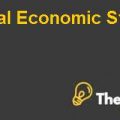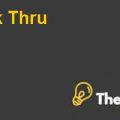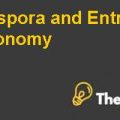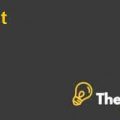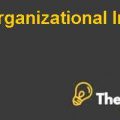
Wealth of the Nations
Human economy’s performance and complexity to generate the gross domestic product GDP is known as wealth of the economy or nation. Those nations who are willing to move forward, put their untiring efforts for improving their economy. On the other hand there are many nations who are still in the age of darkness due to their less education and under performance. Economies development of the country comes from the consumer’s propensity to consume and propensity to save. Economic and social interference are the key factor for the economic development. In the early times, people use different source for exchange of goods and services, this wass barter system and this was the way their economy worked, and some uses other sources in the exchange of goods and services, as the economy grows, development starts in the economies, exchange of goods and services shifted from medium to medium and reaches the stage where concept of money introduces for exchange system.
Record keeping is also the main source of transactions to keep the records of the exchange; records are just maintained to keep the evidence of the transaction, because there is no other use of record in the economic and social development. Record keeping is also representing the history of the exchange in the economies, these records are made to have permanent record for evidence. Records also clear the transactions between the two or more parties collectively working on any similar projects. Hard records are usually used to serve as a purpose of witness, for the disagreeing persons on any transaction, that which person has fulfill the promise. Double entry record system enables the capitalism of the economies.
Accounting bodies and regulatory authorities relaxed all the transactions, which are more complex and typical to evaluate. Record keeping plays a key role in development of complex economies rather than in the emerging economies. Keeping the record increase the complicity of the human brain memory, and to evaluate the human brain either it is right or wrong, it is natural problem human being forget the thing from his mind, book keeping helps the persons to remember their transaction and records. Cross cultural statistical association is the record keeping of the pattern of economic interaction. Records are also used to verify the historical data also to check the validity hypothesis of the data.
Old Record Keeping Systems:
Records normally include the books of account, which normally include all the transactions of the enterprise, ledger, vouchers, minute book and many others. In the early stages records are maintain manually, but gradually, there would be a betterment in the record system and online system introduces, because manually it takes times to record and it is also quite difficult to evaluate the performance and faces difficulty to search the previous records. After the implementation of online record system, all the problems of manual recording cover-up, the evaluation of the performance and search of previous record, it is quite easy to find the previous data. Manual recording also required huge space to maintain the ledgers, books of account and other transaction data of the record but online system uses cloud data system and takes no space to safe the records.
In-Can Quipu:
In the old days, another way of recording transaction is in-can quipu method, in this the records are maintained on the stick with knot on it with different color of threads and length of thread indicates the transaction length. This method is also the out of human brain record system because normally human brain can forget the transactions. In the same tally stick is also used to record the transactions of the parties.
Tally stick:
Tally stick method is the first renowned system which is adopted by most of the economies in the world. The new system of voucher in manual recording introduces to record the transaction to generate the general entries. Now, accountants are more interested to learn the accounting system of their ancients, how they record, how they perform the recording transaction and the evaluation criteria and search of the previous records in the past history.
Standard Cross Cultural Sample (SCCS):
Standard cross cultural sample (SCCS) used the ethnographic research, to evaluate the performance and structure of the economy of the country. The local community used the sampling unit in the primary ethnographic for the society. Bias system is not present in the standard cross cultural sample (SCCS). The current data of the standard cross cultural sample have a data base of exceeding 2000 variables. These codes are listed in the standard cross cultural sample (SCCS), additional variations are then added to the free online electronic database as researchers encoded variables, as the primary...................
This is just a sample partial case solution. Please place the order on the website to order your own originally done case solution.


